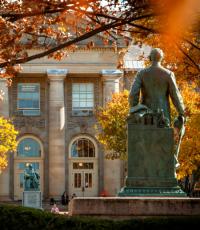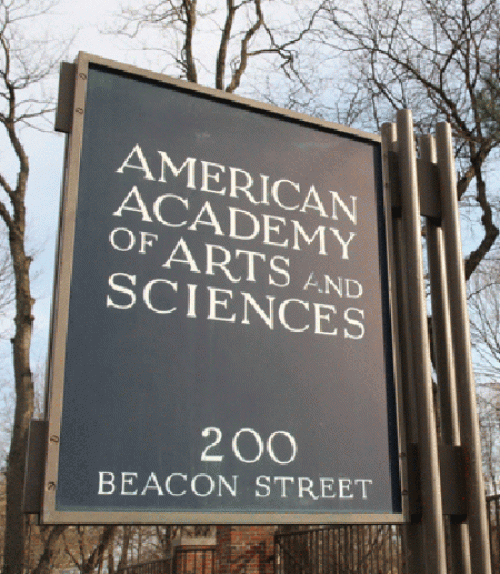Four Cornell faculty members. including two from the College of Arts & Sciences, are among 213 national and international scholars, artists, philanthropists and business leaders elected new fellows of the American Academy of Arts and Sciences.
“It is an honor to welcome this new class of exceptional women and men as part of our distinguished membership,” said Don Randel, chair of the academy’s board of directors and former Cornell provost. “Their election affords us an invaluable opportunity to bring their expertise and knowledge to bear on some of the most significant challenges of our day. We look forward to engaging these new members in the work of the academy.”
The new fellows:
Andrew G. Clark, the Jacob Gould Schurman Professor of Population Genetics, a Nancy and Peter Meinig Family Investigator, and professor in the Department of Molecular Biology and Genetics, joined Cornell in 2002. His research focuses on the genetic basis of adaptive variation in natural populations, with emphasis on quantitative modeling of phenotypes as networks of interacting genes. Clark has been active in both laboratory and computational aspects of genomics research. He is a fellow of the American Association for the Advancement of Science and an elected member of the National Academy of Sciences.
Sandra E. Greene is the Stephen ’59 and Madeline ’60 Anbinder Professor of African History, whose work focuses on West Africa and the social and cultural history of Ghana, from the height of the Atlantic slave trade in the 18th century through the early colonial period, up to World War I. She has particular interests in changes in gender and ethnic relations, African belief systems and the history of slavery. She is the author of three single-authored volumes, with another forthcoming. She is also co-editor of three volumes, with another forthcoming, and the author of more than 25 articles in referred journals. Greene has served as president of the African Studies Association, USA; she is a lifetime member of the Ambrosiana Academy in Milan, Italy, the second oldest library in Europe; and she has held the John Hope Franklin Distinguished Scholar fellowship at the National Humanities Center.
David P. Hajjar, dean emeritus of the Weill Cornell Graduate School of Medical Sciences and professor of biochemistry and pathology, joined the Weill Cornell Medicine faculty in 1978. A 2011 Fulbright Scholar, he has published more than 175 research papers on the pathogenesis of heart disease and is an international authority on this area of research. Hajjar has received awards from the American Chemical Society, the Andrew Mellon Foundation, the American Heart Association and the Federation of American Societies of Experimental Biology. He is a fellow of the American Association for the Advancement of Science and a senior fellow at the Brookings Institution, and was a National Academies of Sciences, Engineering and Medicine Jefferson Science Fellow in the U.S. Department of State in 2014.
Carl F. Nathan is the R.A. Rees Pritchett Professor of Microbiology and chairman of the Department of Microbiology and Immunology at Weill Cornell Medicine, and co-chair of the Program in Immunology and Microbial Pathogenesis at the Weill Cornell Graduate School of Medical Sciences. His research deals with the basis of host defense at immunological and biochemical levels and the implications for therapy. Nathan is a member of the National Academy of Sciences and the National Academy of Medicine, a fellow of the American Academy of Microbiology and a former Ellison Medical Foundation senior scholar in global infectious diseases.




